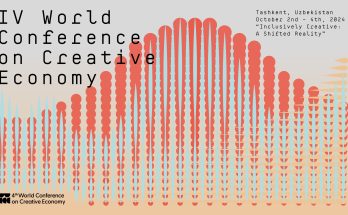 The spiralling violence in Iraq has alarmed the world. The Sunni jihadist group, the Islamic State of Iraq and Syria (ISIS), has captured large swathes of land in western and northern Iraq, declared a Caliphate in these areas, and is now engaged in a fierce battle for the city of Erbil against Kurdish armed forces. The US has commenced limited airstrikes, while the leadership in Baghdad struggles to keep pace with the political changes, as they continue to fight among themselves.
The spiralling violence in Iraq has alarmed the world. The Sunni jihadist group, the Islamic State of Iraq and Syria (ISIS), has captured large swathes of land in western and northern Iraq, declared a Caliphate in these areas, and is now engaged in a fierce battle for the city of Erbil against Kurdish armed forces. The US has commenced limited airstrikes, while the leadership in Baghdad struggles to keep pace with the political changes, as they continue to fight among themselves.
The jihadist surge threatens to leave behind a haunting legacy as minorities flee areas taken over by ISIS, altering the demography of Iraq. Christians have fled Mosul and Qaraqosh, leaving behind the places they called home for over a thousand years. The same fate is shared by other minorities, who refuse to bow to the intolerance propagated by the ISIS rebels.
The severity of the crisis Iraq is facing was driven home by Iraq’s Human Rights Minister Mohammad Shia Al-Sudani, who claimed that 500 people of the small Yazidi community were killed by the Sunni militants –- some buried alive, while 300 Yazidi women were taken as slaves. “We have striking evidence obtained from Yazidis fleeing Sinjar and some who escaped death, and also crime scene images that show indisputably that the gangs of the Islamic State have executed at least 500 Yazidis after seizing Sinjar,” said Al-Sudani.
Who are the Yazidis?
The Yazidis have lived in the mountains of northwestern Iraq for centuries. A small but close-knit minority, most consider themselves to be ethnic Kurds, but follow a religion and lifestyle that differs from the Sunni Kurdish population. Because of the differences in their customs, the community has been relentlessly persecuted by a number of regimes and groups, including the Ottoman Turks, Baathist Iraq, and now the ISIS militants.
Devil-worshippers?
Often misunderstood, the Yazidi religion is an interesting amalgam of its own oral tradition and Islam, with elements of Zoroastrianism, Christianity, and Mithraism — a mysterious religion originating in the Eastern Mediterranean. This syncretic nature of their faith has been misinterpreted by the majority, which has often persecuted them for being “devil worshippers.” However, the Yazidis call themselves “Daasin” (plural Dawaaseen), a name taken from an old Nestorian – the Ancient Church of the East – diocese.
There are a number of theories that seek to explain why the Yazidis are thought of as devil worshippers by other communities. According to one theory, Muslims began to accuse Yazidis of devil worship in the late 16th and early 17 century. Although Yazidis follow one supreme being called Yasdan, a central character in their faith is Malak Taus, a fallen angel whom the Yazidi also refer to as a Shaytan. For many Muslims, Malak Taus’ story is very similar to the Quranic version of the Shaytan—the devil.
Yet for the Yazidis, Malak Taus functions as a source of good rather than the face of evil. Historians and researchers alike have rubbished the theory that the Shaytan worshipped by Yazidi is the same one hated by Muslims.
Another theory states that in the 1970s, Iraq’s Ba’athist government labelled the Yazidis as an Arab offshoot, part of its strategy to distance itself from the Kurds. They also declared that Yazidis were descendants of Yazid bin Mu’awiya, the much disliked ancient caliph, thereby fuelling suspicions Muslims harbour towards the community.
It is difficult to ascertain the exact numerical strength of the Yazidis — figures range from 70,000 to 500,000. Given their history of persecution, they tend to lives in small communities scattered across northwest Iraq, northwest Syria, and southeast Turkey.
They shall overcome
In recent weeks, the ISIS has forced the Yazidis to leave their ancestral homeland of Sinjar. After fleeing from their land, they found themselves trapped in the mountains, without food or water, while militants guarded the passage below. It is their plight that provided US President Barack Obama, the impetus to step up military action against ISIS, in order to help “prevent a potential act of genocide.”
For centuries, the Yazidis have been persecuted, and yet this small resilient community has overcome all odds to survive. The scourge of the ISIS terrorism is once more challenging the resolve of this minority community. While the chances are that they will endure, the price they pay will determine the future of their community, and of a multicultural Iraq.
Author Profile
- India Writes Network (www.indiawrites.org) is an emerging think tank and a media-publishing company focused on international affairs & the India Story. Centre for Global India Insights is the research arm of India Writes Network. To subscribe to India and the World, write to editor@indiawrites.org. A venture of TGII Media Private Limited, a leading media, publishing and consultancy company, IWN has carved a niche for balanced and exhaustive reporting and analysis of international affairs. Eminent personalities, politicians, diplomats, authors, strategy gurus and news-makers have contributed to India Writes Network, as also “India and the World,” a magazine focused on global affairs.
Latest entries
 India and the WorldJuly 26, 2025MPs, diplomats laud Operation Sindoor, call for national unity to combat Pakistan-sponsored terror
India and the WorldJuly 26, 2025MPs, diplomats laud Operation Sindoor, call for national unity to combat Pakistan-sponsored terror India and the WorldJuly 25, 2025When Fire Ends, Diplomacy Begins
India and the WorldJuly 25, 2025When Fire Ends, Diplomacy Begins India and the WorldJuly 16, 2025Operation Sindoor and its Aftermath: India’s Successful Diplomatic Outreach
India and the WorldJuly 16, 2025Operation Sindoor and its Aftermath: India’s Successful Diplomatic Outreach India and the WorldJuly 11, 2025IAF and Operation Sindoor: A New Paradigm in Warfare
India and the WorldJuly 11, 2025IAF and Operation Sindoor: A New Paradigm in Warfare







